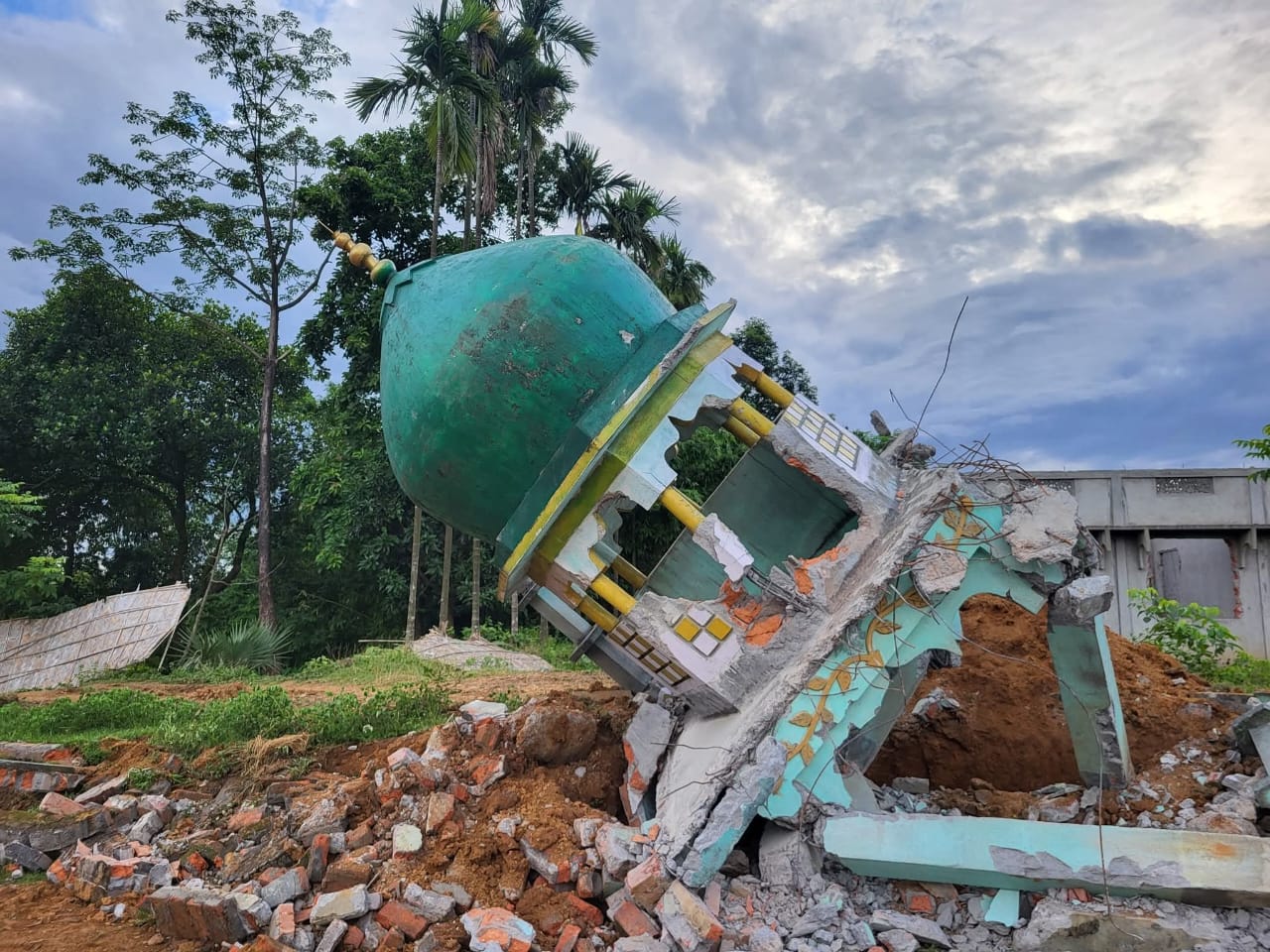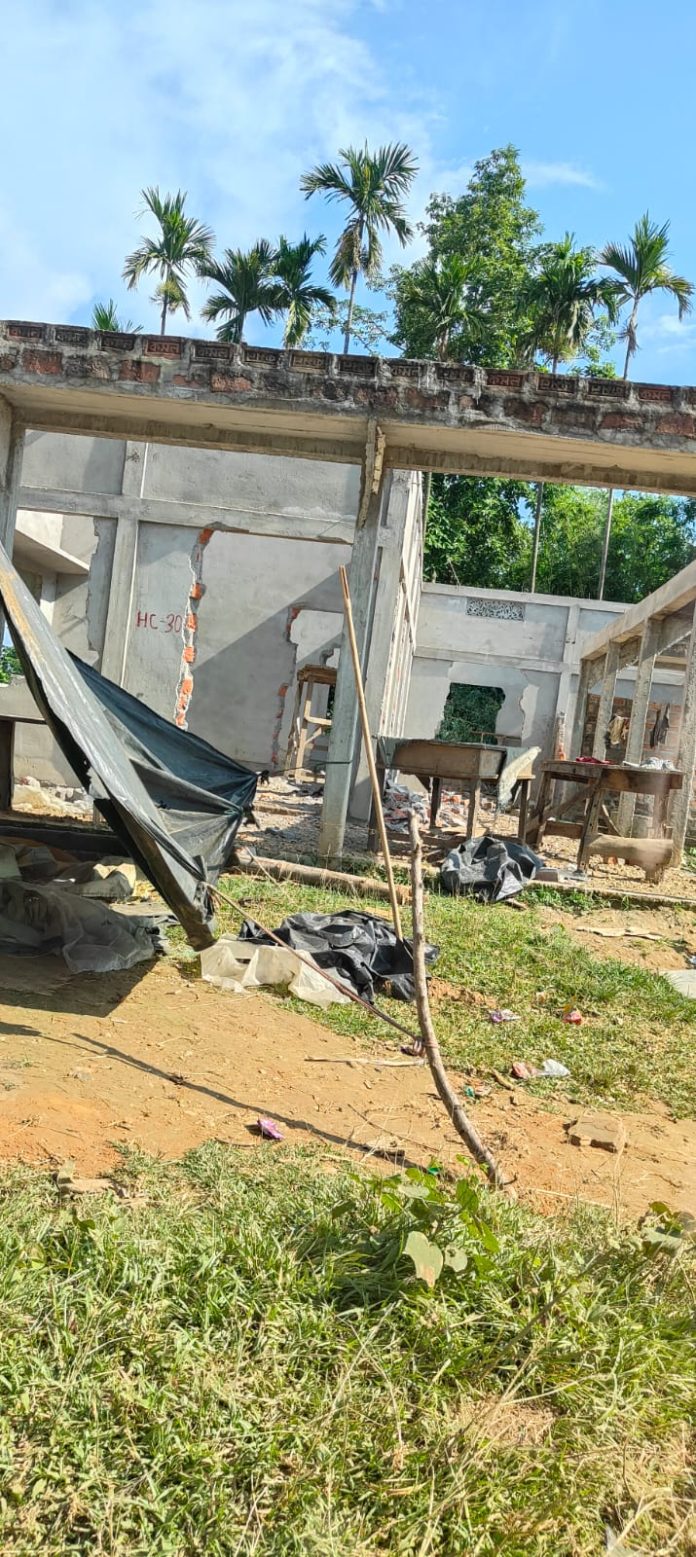Guwahati: A series of aggressive eviction drives by the BJP-led Assam government has left over 4,000 Muslim families—nearly 24,000 individuals—homeless across districts like Goalpara, Dhubri, Nalbari, and Lakhimpur. These operations, allegedly targeting Muslim communities under the pretext of removing “encroachments,” have demolished homes, mosques, madrasas, schools, and even graveyards—triggering widespread outrage and condemnation from civil society, opposition parties, and human rights groups.
The most shocking episode unfolded on July 12 in Paikan village, Goalpara district, where around 1,100 Muslim families from the indigenous ‘Deshi’ Muslim community were evicted. The district administration razed their homes despite a Gauhati High Court interim order issued a day earlier directing the authorities to provide temporary shelter, food, and accommodation before any action. The eviction, carried out to clear alleged encroachments on reserve forest land for a bamboo plantation, rendered over 6,000 people homeless. Tragically, Anaruddin, a 60-year-old man, died of a heart attack as his home was being demolished. Another individual reportedly attempted suicide out of distress.
The eviction drive resembled a war zone, with over 1,000 police personnel and forest guards deployed. Around 50 excavators flattened permanent homes, toilets, water infrastructure, and trees. Witnesses described a “battlefield-like” atmosphere, with women and children in panic and barricades restricting movement. On the same day, the administration allegedly prevented Friday prayers and barred residents from holding funeral prayers for Anaruddin at the Eidgah.
Several opposition leaders, including AIUDF MLAs Ashraful Hussain and Hafiz Rafiqul Islam, were denied entry to eviction sites. Congress MLA Abdur Rashid Mandal and members of the Raijor Dal also faced similar restrictions. Protests erupted outside the eviction zones, with MLAs terming the action “inhuman” and a “murder of democracy.” AIUDF leaders stated that these areas were part of the 1951 NRC, had voter IDs, roads, electricity, and government schools. “Are all these on forest land?” asked Hafiz Rafiqul Islam. Raijor Dal’s Akhil Gogoi, detained during the Chapar eviction, called the actions “illegal and unconstitutional,” accusing the BJP government of targeting Muslims for electoral gains.
In a deeply emotional moment, the Bidyapara Jame Masjid in Paikan was razed despite pleas from worshippers. A tearful young man gave the Azan (call to prayer) in front of the rubble before collapsing from grief. Local journalist Fazal Ali’s home was also demolished. In an emotional livestream, he reported on the destruction of his house, capturing the raw trauma of the drive.

On July 8, in Dhubri district, over 2,000 Bengali-origin Muslim families were displaced from Sontoshpur, Chirakuti, and Charua Bakhra villages to reportedly make way for a solar project by the Adani Group. Residents had lived there for over five decades, relocated previously due to river erosion.
On June 30, in Nalbari, 93 Muslim families were evicted from Bakrikuchi village, where they had been resettled by the government in the 1980s. Documents, including voter lists from 1966 and 1971 and official letters, verified their status as erosion-affected and rehabilitated citizens. All 93 families now live in makeshift plastic shelters on rented private land, lacking water, electricity, food, and medical aid.
Earlier, on June 16–17, 660 families were evicted from Hasila Beel in Goalpara Revenue Circle. On July 3, 220 families—including 21 indigenous—were evicted from four villages in Lakhimpur district, reclaiming about 235 bighas of land.
During protests, Assam Police arrested Saminur Ali, 50+, on accusations of inciting communal hatred. Residents claimed he merely questioned why only Muslims were being evicted. Protests were also organized statewide by the All Assam Minority Students’ Union (AAMSU), demanding humanitarian relief and legal safeguards.
The evictions violated Supreme Court guidelines, which mandate prior notice and rehabilitation before evicting people from government land. In most cases, no prior notice was served.
Congress leaders Gaurav Gogoi and Debabrata Saikia condemned the evictions as “inhumane” and highlighted the Modi government’s promise of housing for all. They urged a halt to evictions unless resettlement is ensured. Despite repeated calls from Union Minister Ramdas Athawale and opposition letters, the Assam government proceeded without adequate rehabilitation plans.
The evicted families now endure inhuman conditions in makeshift camps. Children, elderly, and pregnant women suffer without basic amenities, sleeping under torn plastic sheets amidst relentless rain and hunger.




